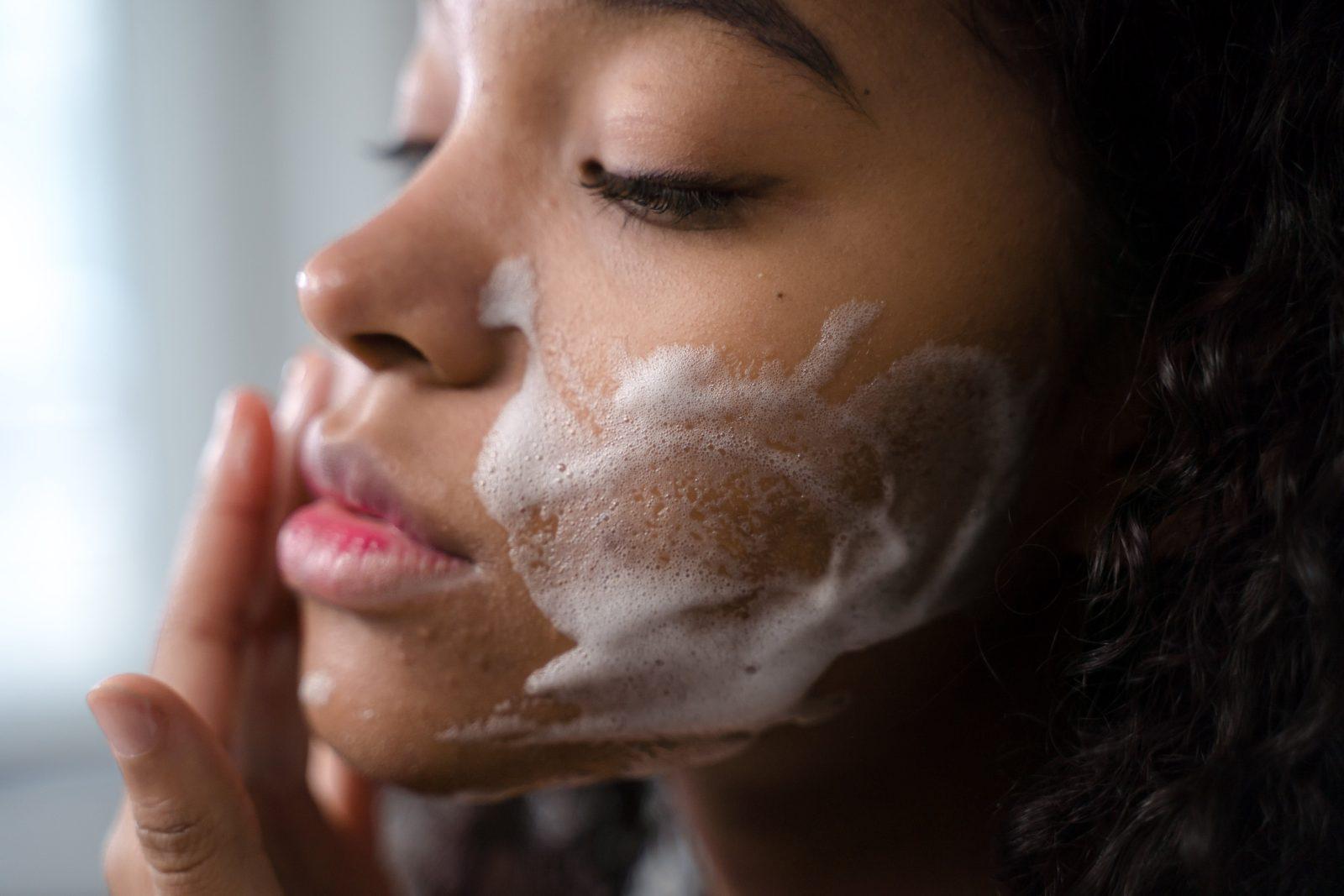Skincare
Why Your Cleanser Might Not Be Working For You
Cleansing is the cornerstone of any skincare routine, and it’s often the first step we take to achieve a clear and healthy complexion. However, not all cleansers are created equal, and you may find that despite diligently washing your face every day, your skin isn’t reaping the benefits you expected. In this blog, we’ll delve into the various reasons why your cleanser may not be working as effectively as you’d like. We’ll explore common misconceptions, ingredients to watch out for, and how to choose the right cleanser for your unique skin type.
Understanding the Basics of Cleansing
Before we dive into the reasons why your cleanser may not be delivering the desired results, it’s crucial to understand the fundamental purpose of cleansing. Cleansing serves to remove dirt, makeup, excess oil, and environmental pollutants from your skin. It creates a clean canvas for the rest of your skincare routine, allowing subsequent products to penetrate effectively.
Using the Wrong Cleanser
One of the most common reasons your cleanser might not be working is simply using the wrong type of cleanser for your skin. Different skin types require different formulations. If you have dry or sensitive skin and are using a harsh, foaming cleanser designed for oily skin, it can strip your skin of its natural oils, leading to dryness, redness, and irritation. Conversely, if you have oily skin and are using a gentle, hydrating cleanser, it may not effectively remove excess oil and impurities, leaving your skin feeling greasy.
Ignoring Your Skin Type
Understanding your skin type is paramount when choosing a cleanser that will work for you. Skin types can be broadly categorized as oily, dry, combination, or sensitive. Each of these types has unique needs, and selecting a cleanser that caters to your specific skin type is crucial for achieving the desired results.
Not Considering Your Skin Concerns
In addition to your skin type, you should also consider any specific skin concerns you have, such as acne, aging, or hyperpigmentation. Certain cleansers are formulated to target these concerns by incorporating active ingredients like salicylic acid for acne-prone skin or antioxidants for anti-aging benefits. If you’re not addressing your skin concerns through your cleanser, it may not be delivering the results you desire.
Using the Wrong Water Temperature
Believe it or not, water temperature matters when cleansing your skin. Hot water can be overly harsh, causing irritation and dehydration, while cold water may not effectively dissolve oil and dirt. Opt for lukewarm water to gently cleanse your skin without causing unnecessary damage.
Rushing Through Your Cleansing Routine
Cleansing should be a thorough process that involves massaging the cleanser into your skin for at least 60 seconds. Rushing through this step can result in inadequate removal of impurities, leaving residue behind. Take your time and allow the cleanser to work its magic.
Not Double Cleansing
If you wear makeup or sunscreen, a single cleanse may not be sufficient to remove all the layers of product and grime on your skin. Consider incorporating a double cleansing routine, which involves using an oil-based cleanser or micellar water to remove makeup and sunscreen before using your regular cleanser. This ensures a deep and thorough cleanse.
Overusing Your Cleanser
While cleansing is essential, doing it too frequently can be counterproductive. Overwashing your face can strip your skin of its natural oils, leading to dryness and potential breakouts as your skin tries to compensate for the loss. Stick to cleansing once or twice daily, depending on your skin type and lifestyle.
Not Patting Dry Gently
After cleansing, it’s crucial to be gentle when drying your face. Avoid rubbing your skin with a rough towel, as this can cause friction and irritation. Instead, pat your face dry with a soft, clean towel to minimize potential damage to the skin’s barrier.
Skipping Moisturizer
Many people believe that a cleanser should leave their skin feeling squeaky clean, but this isn’t necessarily the case. Your skin should feel clean but not tight or dry. Skipping moisturizer after cleansing can leave your skin lacking the necessary hydration and protection it needs. Always follow up with a suitable moisturizer to lock in moisture.
Not Considering Environmental Factors
Environmental factors such as pollution, humidity levels, and seasonal changes can affect your skin’s needs. If you live in a highly polluted area, you may need a cleanser that offers additional cleansing power. Likewise, adjusting your skincare routine based on the season can help address changing skin needs.
Failing to Adjust Your Routine
As you age, your skin’s needs may change. What worked for you in your twenties may not be suitable for your skin in your thirties or beyond. Regularly assess your skin’s condition and adjust your skincare routine accordingly. This may involve changing your cleanser to better suit your current skin type and concerns.
Not Reading Ingredient Labels
One of the most critical aspects of choosing the right cleanser is reading and understanding the ingredient label. Avoid cleansers that contain harsh chemicals, sulfates, or fragrances, as these can be irritating to the skin. Instead, look for gentle, hydrating ingredients like glycerin, aloe vera, or chamomile.
Impatience with Results
It’s important to remember that skincare is a long-term commitment. You may not see immediate results from your cleanser, as it typically lays the foundation for the rest of your routine. Be patient and consistent with your skincare regimen, and you’ll likely notice improvements over time.
Not Seeking Professional Guidance
If you’ve tried various cleansers and still haven’t achieved the desired results, it may be time to consult a dermatologist or skincare professional. They can assess your skin’s specific needs and recommend products or treatments tailored to your unique concerns.
In conclusion, the effectiveness of your cleanser depends on various factors, including your skin type, concerns, and the product itself. By taking the time to choose the right cleanser, using it correctly, and considering the needs of your skin, you can ensure that your cleansing routine works to improve your skin’s health and appearance. Remember that skincare is a journey, and with patience and the right approach, you can achieve the radiant and healthy skin you desire.





